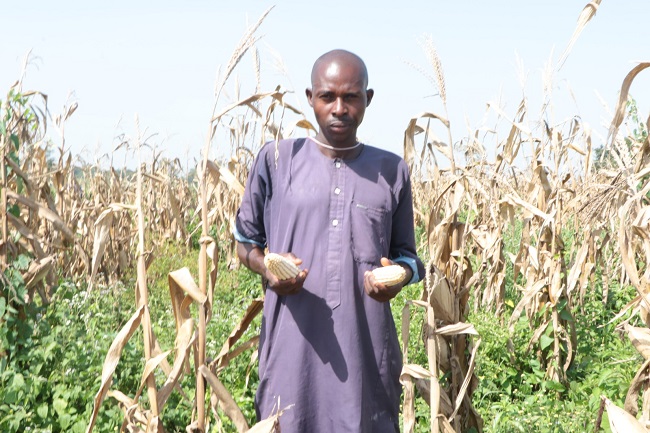A new on-farm study has confirmed that TELA Maize hybrids are delivering significantly higher yields, greater profits, and better pest resistance for Nigerian farmers compared to conventional maize varieties.

The trials, conducted during the 2024 wet season by the African Agricultural Technology Foundation (AATF) and its partners, revealed that the TELA maize hybrid SAMMAZ 75T achieved average yields of 5.09 tons per hectare, a 54% increase over the 3.30 tons per hectare recorded for non-TELA maize. This yield advantage translated into higher farm income, with TELA maize earning ₦3.16 million per hectare, compared to ₦2.05 million from conventional maize.
The on-farm demonstrations preceded the January 2024 commercialisation of four TELA Maize hybrids – SAMMAZ 72T, 73T, 74T, and 75T – developed by scientists at the Institute for Agricultural Research (IAR), Ahmadu Bello University, Zaria. These varieties are bred to resist fall armyworm, stem borers, and withstand drought stress, making them more resilient in Nigeria’s increasingly variable climate.
Conducted across multiple sites with 120 participating farmers, the trial involved each farmer cultivating 0.5 hectares of TELA maize and 0.5 hectares of non-TELA maize. A total of 1.5 tons of seed was distributed for the trial. At harvest, the superior performance of TELA maize was evident – not just in yield but in reduced pest damage and lower pesticide use.
TELA maize plots required fewer pesticide applications, averaging 1.3 sprays per season, compared to 2.1 sprays on non-TELA plots. Only 22% of TELA maize farmers reported any pest damage, while 86% of non-TELA maize farmers experienced damage, with some recording losses as high as 50% to 66%.
“These findings confirm even our earlier national performance trials,” said Professor Rabiu Adamu, Principal Investigator for the TELA Maize project. “No TELA maize farms recorded damage beyond one-third of the crop, whereas some non-TELA plots suffered losses of up to two-thirds. This level of protection is critical for smallholder resilience.”
The financial benefit was equally striking. TELA maize plots generated over ₦1.1 million more per hectare than conventional maize, driven not only by higher yields but also by savings on chemical inputs and labor. In dollar terms, farmers earned about USD 2,098.42 from TELA maize per hectare, compared to $1,360.47 from non-TELA plots.
Dr. Sylvester Oikeh, AATF’s Project Manager for TELA Maize, described the results as a milestone for Nigerian agriculture. “TELA maize represents a key step forward in achieving climate-resilient, profitable farming. It delivers on multiple fronts – higher output, reduced input costs, and better environmental outcomes.”
Farmer feedback echoed this sentiment. About 90% of participants expressed satisfaction with TELA maize performance. Many described it as “stress-free” and “more reliable,” citing uniform germination, faster growth, and reduced need for spraying as major benefits.
“With TELA, I didn’t have to spray as much, and the maize still came out better than the others. It saves me time and money,” one farmer noted.
As Nigeria pushes for greater adoption of climate-smart and science-driven agricultural practices, TELA maize is gaining recognition as a transformative tool for smallholder farmers. Its built-in pest resistance and drought tolerance align with national goals for improved food security, reduced pesticide use, and sustainable farming.
“TELA maize is not just another variety,” Dr. Oikeh emphasised. “It is a pathway to resilient, productive farming that empowers farmers to secure better livelihoods and ensure Nigeria’s food future.”
The successful outcome of the on-farm trials underscores the importance of continued investment in agricultural innovation and farmer-centred research. With wider adoption, TELA maize could mark a turning point for maize production in Nigeria and across sub-Saharan Africa.
